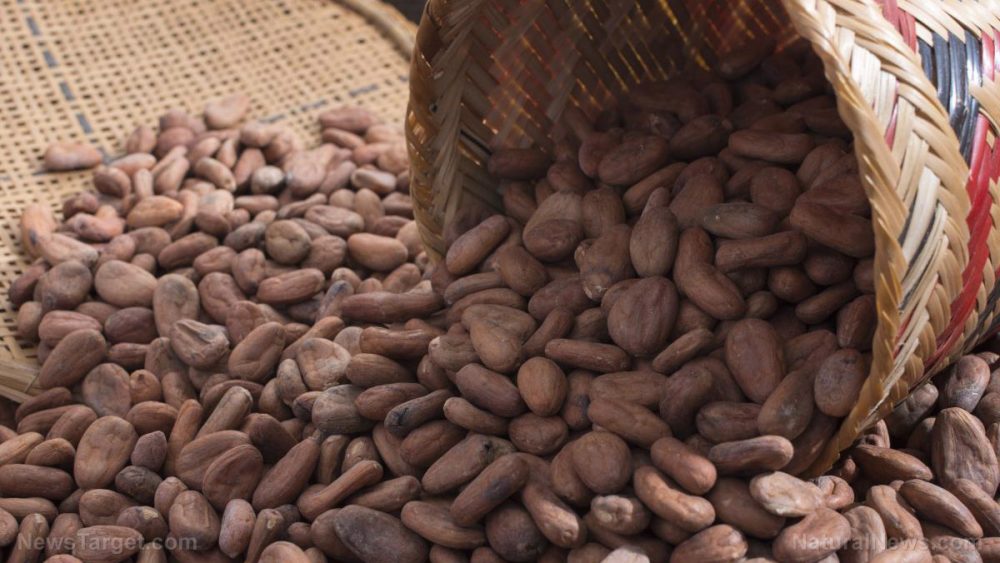
Advertisement
A warm cup of cocoa with marshmallows is the perfect beverage for rainy days or a cold spell. You don’t even have to feel guilty for enjoying hot chocolate because cocoa contains polyphenols, which are naturally occurring antioxidants that have several health benefits.
Research has found that these compound in cocoa may help reduce inflammation, improve blood flow, and even lower blood pressure. However, roasting cocoa beans is believed to reduce their polyphenol content.
But there’s good news for cocoa lovers who also want to reap the benefits of a comforting beverage. According to a study by researchers from Penn State University (PSU), roasting cocoa beans for a certain length of time and at a specific temperature may help preserve and boost the potency of some of cocoa’s bioactive and antioxidant compounds. Roasting cocoa beans a certain way also retains chocolate’s benefits.
Results from previous studies imply that roasting cocoa beans can reduce their polyphenol content, which offer health benefits, especially for cancer prevention and patients with cardiovascular and inflammatory diseases and metabolic disorders.
Joshua Lambert, associate professor of food science at PSU and the lead researcher for the study, explained that even if chocolate is often consumed as a treat, for the last couple of years it has been recognized as a viable source of healthy compounds. Lambert added that their goal for the study was to determine if roasting cocoa beans could help “preserve preferred flavor characteristics and boost health benefits.”
Roasted cocoa beans and polyphenol content
For the study, the researchers looked into how whole-bean roasting influenced the aroma-related chemistry, pancreatic lipase inhibitory activity, and polyphenol content of cocoa after various roasting conditions.
Inhibiting pancreatic lipase activity is a feasible method for resolving the problem of obesity. Pancreatic lipase helps break down triglycerides into fatty acids. The fatty acids are then absorbed through the small intestine’s lining. A pancreatic lipase inhibitor restricts the formation of fatty acids, effectively preventing the absorption of dietary fats into the body.
Lambert commented that in the study, epicatechin, smaller proanthocyanidins, and total phenolics were successfully reduced when the cocoa beans were roasted at temperatures below 302 degrees Fahrenheit. Meanwhile, roasting the cocoa beans at 302 degrees Fahrenheit or higher boosted the levels of catechin and larger proanthocyanidins, which are more effective at inhibiting pancreas lipase.
Following these changes, the researchers discovered that cocoa beans roasted at 338 degrees Fahrenheit were also more effective at inhibiting pancreatic lipase inhibitory activity than cocoa roasted at lower temperatures.
The researchers noted that cocoa aroma-related compounds were also boosted when the beans were roasted at temperatures above 212 degrees Fahrenheit. On the other hand, “deleterious sensory-related compounds” formed at 338 degrees Fahrenheit.
Based on the research findings, cocoa roasting can be improved to boost the content of some polyphenols. Additionally, it can increase anti-pancreas-lipase activity while simultaneously retaining a “favorable aroma profile,” shared Lambert.
He continued to say that the findings of the study showed that roasting cocoa beans either makes their individual polyphenolic content or individual polyphenol compounds increase or decrease. Lambert acknowledged that the process of roasting cocoa beans is complex, and it’s not as easy as declaring that it decreases phenolic content or that it minimizes the health benefits of cocoa.
Lambert posits that the results of the study can benefit chocolate makers, especially since there is a surge in the popularity of enhanced chocolate products that offer health benefits, such as Mars company’s CocoaVia cocoa-extract supplement that comes with 375 milligrams (mg) of cocoa flavanols/antioxidants.
Lambert also believes that aside from chocolate and cocoa, the study can help emphasize the importance of how processing can influence the health benefits of certain foods.
The proven health benefits of dark chocolate
Don’t forget that not all kinds of chocolate are good for you. For example, milk chocolate contains added sugar and cream while dark chocolate, which contains more cocoa, offers the following health benefits:
- It can help improve blood flow and lower blood pressure – Cocoa contains bioactive compounds that can help improve blood flow in the arteries. Improved blood flow can help lower blood pressure.
- It can improve brain function – Cocoa may help boost cognitive function in elderly individuals with mental impairment. It can also improve verbal fluency and several risk factors for disease. The cocoa in dark chocolate also has stimulant substances like caffeine and theobromine, which could explain how cocoa boosts brain function in the short term.
- It contains antioxidants – Compared to other foods like blueberries and acai berries, dark chocolate contains more antioxidants like catechins, flavanols, and polyphenols.
- It’s full of nutrients – High-quality dark chocolate has a high cocoa content that makes it very nutritious. Dark chocolate contains soluble fiber and it’s also full of minerals like copper, iron, magnesium, and manganese.
Treat yourself to hot cocoa or dark chocolate occasionally if you’re looking for a sweet, indulgent treat that also offers many health benefits.
Sources:
Advertisements







